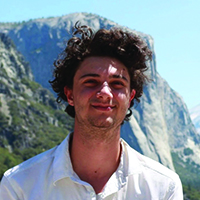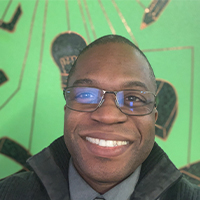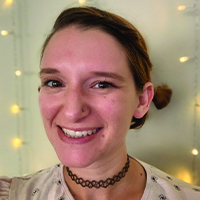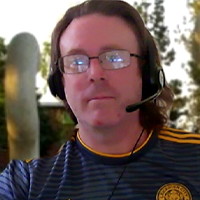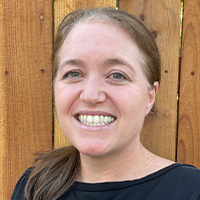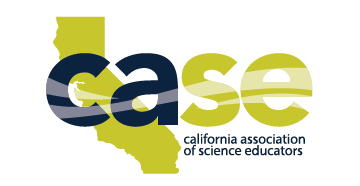
Computer Science Summit
Virtual Computer Science Summit
Saturday, October 2, 2021 | 8:00 am - 4:30 pm
CASE Members: $45 | Nonmembers : $65
Thank you for joining us for the 2021 Computer Science Summit held on October 2, 2021. Participants engaged in classroom experience, participated in a common experience with their
own Circuit Playground Express and met
speakers from Discovery Cube, Crystal Cove, CSU
Northridge and Ben Werb, Opening Summit Speaker.
Saturday, October 2, 2021 |
|
| 8:00 am - 8:30 am Jenny Chien, Conference Co-Chair |
Welcoming Remarks/ Goals and Agenda Review
|
| 8:30 am - 9:15 am Ben Werb, University of California, San Diego
|
Opening Summit Keynote Speaker Computers in the Ocean This session will include Ben’s experience as an undergraduate researcher learning about how impactful computer science can be for studying climate. Computers in the ocean range from citizen science projects collecting data from the nearshore environment with surfboards to global networks of autonomous ocean profilers. Programming and computer science have changed how we are able to study the ocean and it’s important to continue research and progress in this field. |
| 9:15 am - 9:30 am | Break/Transition to Homegroups |
| 9:30 am - 9:45 am CASE BOD and Conference Committee Facilitated |
Homegroup Discussion |
| 9:45 am - 11:00 am Stephen Callahan, San Joaquin County Office of Education
|
Common Computer Science Experience
After seeing how scientists gather wave data, we’ll look at how students can better understand waves through the lens of data, with some help from computer science. Analyzing and Interpreting Data is a part of the NGSS Science and Engineering Practices and Data and Analysis is one of the California Computer Science Standards. An interdisciplinary approach can create exciting and meaningful learning experiences for students. We’ll learn to program the Circuit Playground Express then use it and some inventions from the SJCOE FabLab to gather our own data and then analyze it. No previous coding experience is required. |
| 11:15 am - 11:30 am | Homegroup Debrief
|
| 11:30 am - 12:30pm | Lunch |
| 12:30 pm - 1:15 pm Jenny Chien, Conference Co-Chair |
Unpacking Standards and Framework
|
| 1:15 pm - 1:30 pm CASE BOD and Conference Committee Facilitated |
Homegroup Discussion |
| 1:30 pm - 2:30 pm | Grade-band Specific Lessons and Resources Select a grade-band session to attend: K-5, Middle School or Highschool |
|
Kindergarten - 5th Grade Gia Patafio, Discovery Cube
|
Scratch in the Class Learn how to use Scratch in your classroom/science institution curriculum as a fun way to connect coding to STEM! Not only is Scratch useful for teaching the fundamentals of coding and programming, but you can use it to reinforce and deepen your understanding of other science concepts. In this workshop, we will go over the basics of Scratch, how to create games in Scratch, and ways to relate these games to a variety of NGSS concepts including space, geology, and environmental impact. |
| Middle School Science Kaitlin Magliano, Education Manager Sara Ludovise, VP Programs, Crystal Cove Conservancy |
Project Crystal Cove: Integrating Coding and Computaional Thinking into Middle School Science Join Crystal Cove Conservancy, the nonprofit partner of Crystal Cove State Park, to explore how to integrate computer science and computational thinking into a middle school environmental education program! In this one-hour crash course, you’ll step into the shoes of students to help investigate a real-world environmental problem at Crystal Cove State Park. As you do so, you’ll use conditional statements to model ecosystem interactions, write block-based programs to measure real-world data, and use data visualizations to search for patterns. At the end of the presentation, you’ll get access to our free online program to help you integrate these approaches into your classroom! |
| Highschool Brian Foley, CSU Northridge
|
Computation in High School Science Computation and computational thinking are essential parts of modern science. Not only are they critical for SEP 5, students will need to be able to use computation in future jobs in science or other areas. This workshop will introduce different approaches for using CS in science class including spreadsheets, coding algorithms and even creating your own simulations. Teachers will explore a thermodynamics computation activity. Learn how to use buttons and events with Code.org’s Studio Code tool to create a scientific calculator app. Then jump into javascript to move objects by adjusting speed and acceleration. We share resources to bring computation into your science classes. |
| 2:30 pm - 3:15 pm Jenny Chien, Conference Co-Chair |
Closing Remarks |
| 3:15 pm - 4:30 pm | Networking Opportunity |
